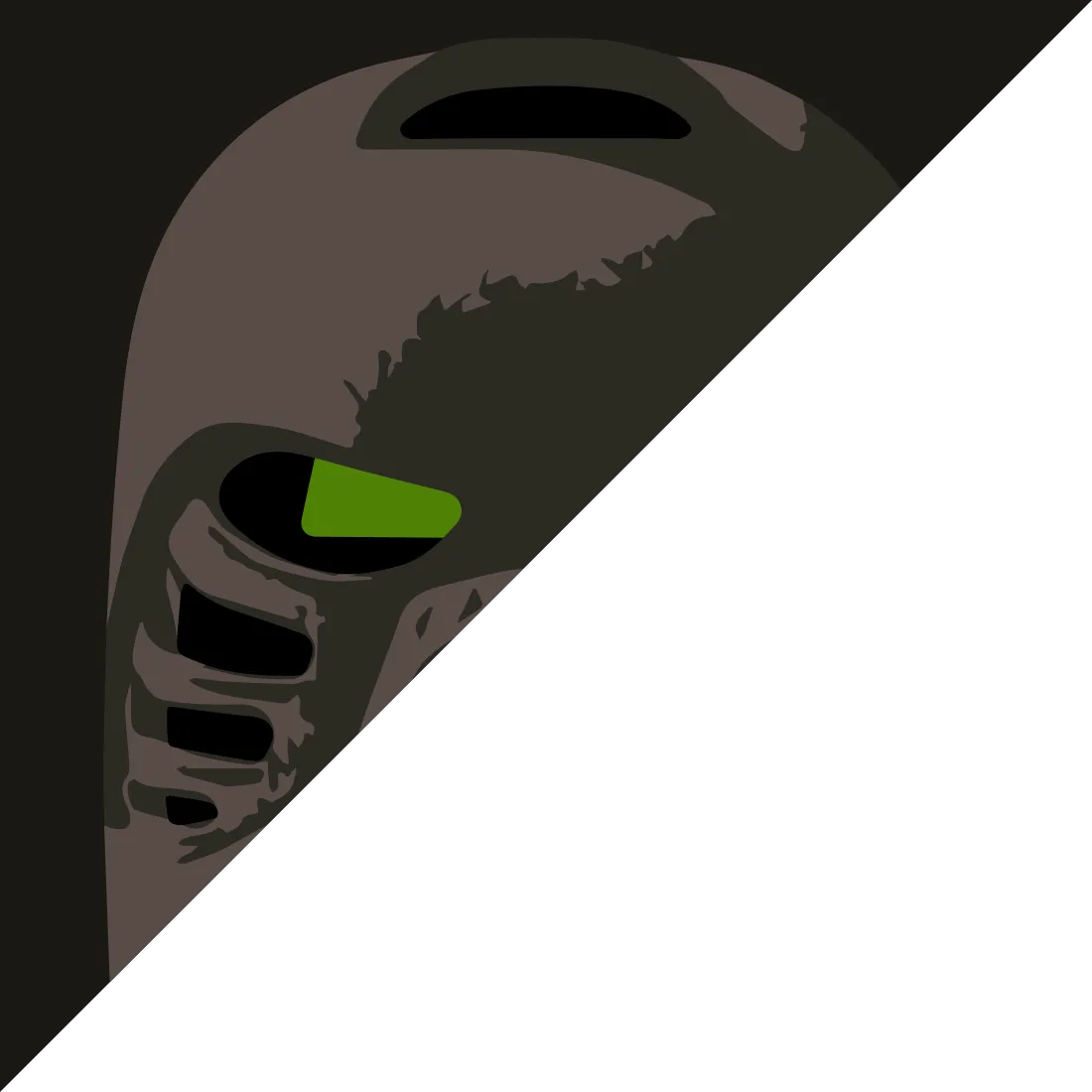Tales of the Matoran
The Creation of Koli
Written by Tahnok Trapper
Small black figures were starting to appear on the desert horizon. As they neared the Path of Prophecies, they revealed themselves to be a cavalcade from Onu-Koro. In the front and back rode members of the Ussalry on crabs adorned in purple and black, flanking an older, larger Ussal in the middle. On that Ussal sat the village elder - Turaga Whenua. Turaga Onewa of Po-Koro stood on the village wall and anxiously watched the procession approach. The two Turaga had a matter of great urgency to discuss: a disagreement between members of their respective villages which, if ignored, could end in disaster.
The Onu-Koro cavalcade stopped at the village entrance. The guards of Po-Koro exchanged looks with the members of the Ussalry. After a tense moment of silence, the Po-Matoran saluted and allowed the cavalcade to pass, although their gaze stood fixed on the congregation as it entered. Up above, Turaga Onewa sighed with relief and hurried back down. He found the newcomers dismounting their crabs in the nearby shade. The Onu-Matoran, still blinking from the glow of the bright desert sand, were holding their staffs firmly, carefully examining their surroundings and the Po-Matoran, who in turn, eyed the newcomers with barely disguised contempt. Two members of the Ussalry helped Turaga Whenua get down from his Ussal. Whenua stepped out of the shade and looked around, as if he was searching for someone to welcome him and his congregation to the village. Turaga Onewa smiled and stepped forward.
“Brother! Welcome to Po-Koro!”
Whenua looked and when he saw Onewa approach, he smiled as well and held out his fist. The two Turaga greeted each other like in the time before time.
“Thank you for coming on such short notice,” continued Onewa. “I hope your journey was uneventful. I wouldn’t have called you if I didn’t feel it was urgent.”
“Thank you, brother, for your kind welcome,” replied Whenua. “While I don’t like to leave my familiar underground caverns, I feel in this case, I had no other choice but to come here.”
Onewa nodded grimly. Together, they took a walk.
“I like what you’ve done with the place,” joked Whenua, referring to the newly built village.
Onewa chuckled. “It isn’t exactly Po-Metru,” he said, “but it’s as close as we will ever get.”
“You should come and see what we’ve done with Onu-Koro,” said Whenua. “I believe you’ll like the ambient.”
“I’m sure I will,” replied Onewa, “but let us leave that for another time. Come to my hut, we have important matters to attend to.”
✴ ✴ ✴
Onewa explained what had happened. A miner from a visiting group of Onu-Matoran had made some less than savoury comments about Po-Koro sculptures. The Po-Matoran, naturally offended by such a statement, returned the favour by questioning the quality of Onu-Koro stone. What followed was a heated exchange of words and Matoran tools. The elder of Po-Koro barely stopped the fight from getting any worse.
“Where are the miners now?” asked Whenua.
“They are keeping to themselves in their hut,” answered Onewa. “They barely go outside and when they do, I can feel the resentment in the air.”
“I’m sorry about their behaviour, brother.”
“You need not apologise, my friend. The blame lies in the pride of both our people. What we need to do is find a way to reconcile the differences between them.”
“What did you have in mind?”
“Remember the game we used to play back on Metru Nui?”
“Akilini?”
“Yes. Our people both want to prove they are the best at what they do. We need to give them something to channel their competitiveness.”
Whenua pondered. “But where are you going to get all those disks?”
Onewa smiled. “We don’t need disks. We already have rocks.”
✴ ✴ ✴
The Matoran gathered at the back of the village. Barries of stone were placed around a field, creating what Turaga Onewa called a “stadium”. In each corner were two pillars covered at the top by another. Onewa called them “goals”. Around the field, makeshift stands were constructed for the Matoran. The people from both villages were now seated, far from each other, conversing loudly and occasionally throwing an insult to the other camp. On the floor of the stadium lay crudely crafted stone balls.
Turaga Whenua and Turaga Onewa entered the field.
“I hope this works,” murmured Onewa.
“I have a feeling it will,” calmed Whenua. “Now, won’t the ‘referee’ ordain the match?”
Onewa bumbed fists with Whenua and stepped towards the middle of the stadium.
“Attention, dear Matoran!” he called. The crowds fell silent at once.
“As you are no doubt aware, there has been some discord between the people of Po-Koro and Onu-Koro. Turaga Whenua and I do not believe in violence as a means of solving conflict. We have henceforth decided that the people of our villages will settle our differences another way.” He pointed towards the stone balls on the floor. “We propose to you a game to determine who is in the right. Players from both villages will compete in kicking these balls into the opponents’ goals.”
The crowds gasped with intrigue and excitement.
“We will play until one of the two teams scores 21 goals. The one to do so will win the match. Are we understood?”
Cheers from the stands made it clear that the Matoran understood.
“Very well. May the game begin!”
✴ ✴ ✴
The game lasted the entire afternoon. At first, the Matoran struggled to master this new sport and played rough, necessitating a few interventions by the Turaga. But after some time, they played as if they knew how to play from the very beginning. At first, the Po-Matoran seemed to have the upper hand against the slow and sun-blinded Onu-Matoran. As twilight began to shine on the field, however, the earth-dwellers started to catch up. Every goal was met with excited shouts from the stands. The spirit of competition grew and while it did get loud, no tools were ever thrown.
It was now getting dark and the teams were tied at 20 goals.
“Maybe we shouldn’t have copied that rule about 21 goals,” whispered Whenua to his Po-Koro equivalent. “Next time we play, we should change it to something else. Maybe a predetermined number of goals. What do you say, brother?”
Much to the Onu-Turaga’s annoyance, Onewa wasn’t listening. He was too focused on the game.
The crowd was silently anticipating the final, tiebreaking goal. All eyes were on a Kakama wielding Po-Matoran, who had showed incredible skill in this new sport.
“That’s Huki,” said Onewa to Whenua with barely contained excitement. “He is the captain of the Po-Koro Guard and my right-hand Matoran.”
The fateful moment had begun as Onepu, a member of the Ussalry who had joined the game, sent a ball flying into Huki’s goal. Thinking quickly, the Po-Matoran took a step back and when the ball came close, he struck it with his head, sending it into the goal guarded by a miner named Taipu. The Onu-Matoran goalkeeper had no time to react. The ball flew past him and straight into the goal. Elated Po-Matoran stood up and celebrated Po-Koro’s victory. Onewa found that he too was standing and cheering.
“Calm down, brother!” laughed Whenua. “You still have to play referee.”
Onewa immediately sat back down, ready to quell any argument that would erupt as a result of the outcome. He scanned the stands and stadium. To his surprise, he found Onu-Matoran congratulating the Po-Matoran equals, shaking hands and patting each other on the back. It seemed that thanks to the game, the spirit of camaraderie trumped the spectre of resentment. Realising this, he shook hands with the Onu-Turaga.
“Wonderful game, brother!” said Whenua. “Your players have shown incredible skill.”
“Your players were not far behind!” replied Onewa. “But thank you.”
They both watched as the crowd lifted Huki and carried him across the stands.
“There’s still one thing left to discuss, though,” remarked Whenua, suddenly.
Onewa looked at him with confusion. “What’s that?”
“How shall we call this new game?”
Onewa pondered. It can’t be Akilini, he said to himself. Then he came up with a number of sophisticated names, none of which he felt suited this simple sport. At last, he found it and shared it with Whenua.

